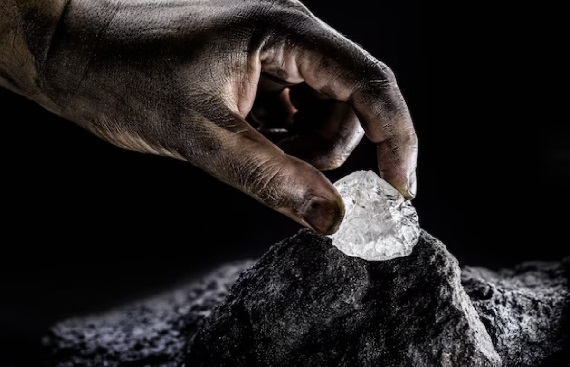India's Lithium Reserves: A Game-Changer for the Economy and Industries

India's recent discovery of lithium reserves in the Union Territory of Jammu and Kashmir is a significant development that has the potential to revolutionize various industries, including electric vehicles (EVs) and electronics. Lithium is a rare and valuable mineral used in the production of lithium-ion batteries, which power various electronic devices, including EVs, mobile phones, and laptops. Currently, India is heavily dependent on imports to meet its lithium requirements, with more than 80% of its lithium needs imported from countries like China, Argentina, and Chile. The discovery of lithium reserves in India presents an opportunity for the country to reduce its dependence on imports, become self-reliant in the production of lithium-ion batteries, and position itself as a major player in the global lithium-ion battery market. In this let's explore how India's lithium reserves can revolutionize the EV and electronics industry.
Reducing Dependence on Imports
Reducing dependence on imports is a crucial step for India's economy and energy security. By producing lithium-ion batteries domestically, India can reduce the costs associated with importing lithium, which can be expensive due to transportation costs and fluctuating prices. Additionally, domestic production can help India avoid supply chain disruptions and ensure a consistent supply of lithium-ion batteries for various industries, including EVs, electronics, and renewable energy.
The potential to reduce dependence on imports and produce lithium-ion batteries domestically can also help boost India's competitiveness in the global market. With the growing demand for EVs and renewable energy sources, lithium-ion batteries are becoming increasingly important, making the lithium-ion battery market highly lucrative. By producing these batteries locally, India can increase its market share in the EV and electronics industries and become a significant player in the global lithium-ion battery market.
However, to fully capitalize on the potential of lithium reserves in India, significant investment in infrastructure, research and development, and sustainable mining practices is required. The government and private sector must work together to develop the necessary infrastructure and manufacturing capabilities to harness this opportunity and ensure sustainable mining practices.
A Boost to the Automobile Industry: The automobile industry is expected to be the biggest beneficiary of the discovery of lithium reserves. The demand for electric vehicles (EVs) is increasing, and the production of lithium-ion batteries in India will make them more affordable, further accelerating the adoption of EVs. The local production of lithium-ion batteries will also make it easier for Indian manufacturers to compete with international brands and increase the country's market share in the EV industry.
Revolutionizing the Electronics Industry: The electronics industry is another industry that is expected to benefit from the discovery of lithium reserves. The growing demand for electronic devices, especially mobile phones, makes India a significant market for lithium-ion batteries. The availability of lithium reserves in India will make it easier for local manufacturers to produce lithium-ion batteries and reduce the cost of production, making electronic devices more affordable for consumers.
The Energy Sector: The energy sector is another industry that is expected to benefit from the discovery of lithium reserves. The adoption of renewable energy sources like solar and wind power requires large-scale energy storage systems, and lithium-ion batteries are a vital component of these systems. The availability of lithium reserves in India will make it easier for the country to increase its capacity for energy storage systems and make renewable energy more accessible and cost-effective.
Opportunities in the Global Lithium-ion Battery Market: The discovery of lithium reserves in India also presents an opportunity for the country to become a major player in the global lithium-ion battery market. Currently, China and South Korea dominate the market, but India's large population and growing demand for EVs and renewable energy make it an attractive market for lithium-ion battery manufacturers.
Challenges to Overcome: There are several challenges that must be addressed for the country to fully capitalize on this development. One major challenge is the need to develop the necessary infrastructure and manufacturing capabilities to extract and process the lithium. This includes establishing lithium mines, refining facilities, and battery manufacturing plants.
Another challenge is the need to ensure sustainable mining practices and minimize the environmental impact of lithium extraction. Lithium mining can be a water-intensive process and can potentially lead to the contamination of water sources. It is crucial for the government and private sector to implement sustainable mining practices and invest in research and development to reduce the environmental impact. Furthermore, India will need to invest in research and development to improve the efficiency of lithium-ion batteries and develop new battery technologies. This will require significant investment in education, research, and development to foster innovation and stay competitive in the global market.
Finally, India will need to navigate international trade regulations and market competition to ensure that its lithium reserves translate into economic growth and industry leadership. The government will need to work with domestic and international partners to establish partnerships and secure markets for Indian lithium and battery products.
Conclusion
Looking on the bright side, it could take up to five to seven years before this metal can be utilized for commercial purposes. However, if more of these deposits are discovered in the future, India could gradually achieve self-sufficiency. Presently, India has limited cell manufacturing capacity, but private companies are investing in this area with assistance from the government's production-linked incentive program. This is good timing because once India's cell manufacturing capacity is established, there will be ample lithium resources available.
Read More News :
Godrej & Boyce partners with Renmakch to develop a 'Make-in-India' value chain for Indian Railways
ICICI Bank rolls out digital solutions for participants of capital market, custody services



